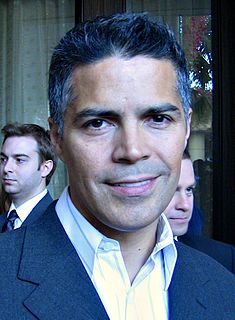A Quote by Lamman Rucker
Most importantly, I realize the value of the other people - the extended family - the other people within my community, my cultures: my teachers and the other people I call Auntie, Uncle, Godfather, Godbrother, whatever. These are people who pulled you in and made you part of their lives and their homes.
Related Quotes
My greatest influences are actually probably a set of different teachers. And these teachers, most prominently at my high school, but also a few others, helped kind of instill in me, thinking thoughts about how life is meaningful in terms of how we all kind of live in a network of people and how you interact with those people is part of what makes life essentially meaningful and then kind of concepts to think about, how do you add value to other people's lives? How do they add value to yours? And how do you kind of form a community together in the network?
A community is the mental and spiritual condition of knowing that the place is shared, and that the people who share the place define and limit the possibilities of each other's lives. It is the knowledge that people have of each other, their concern for each other, their trust in each other, the freedom with which they come and go among themselves.
The bottom line for most people who are normal is their need for other people. Even the greedy ones have this need - as long as they're not sociopathic. They may be very misguided and unhappy and do bad things and so forth, but in general if you look down deep, you find that these people are mainly concerned with other people and what other people think of them.
Literature presents you with alternate mappings of the human experience. You see that the experiences of other people and other cultures are as rich, coherent, and troubled as your own experiences. They are as beset with suffering as yours. Literature is a kind of legitimate voyeurism through the keyhole of language where you really come to know other people's lives--their anguish, their loves, their passions. Often you discover that once you dive into those lives and get below the surface, the veneer, there is a real closeness.
There are a lot of scientists or other people who can be very skeptical or rational within their field, but they may well not do that in other aspects of their lives, when it comes to things like religion, or what have you. People have this amazing gift for being selective with their curiosity and skepticism.




































